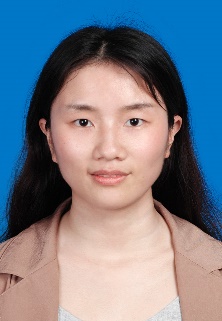
Dr. Ting Wang, is a postdoctoral fellow at the Institute of Brain Science and Rehabilitation Medicine, South China Normal University (co-supervised by Prof. Xuchu Weng). Her main research area is attention and perceptual decision making. She is dedicated to exploring 1) the neural mechanisms of spatial attention; 2) the plasticity of brain function; and 3) emotion and cognition. Her pioneering work includes: 1) verifying that TMS stimulation of the brain can simulate unilateral neglect and support right brain dominance; 2) resolving the decades debate between Hileman's contralateral spatial theory and Kinsbourne's inhibitory equilibrium theory through meta-analysis; and 3) revealing the cognitive and neural mechanisms underlying the alerting and orienting effects of spatial attention through computational modeling. She uses various research techniques include meta-analysis, structural equation modeling, network analysis, big data online experiments, brain imaging (including EEG event-related potential and time-frequency analyses, resting-state and task-state fMRI, and white matter fiber tract tracking), and computational modeling.
Email: t.wang@m.scnu.edu.cn; wangting9312@gmail.com
Education Experience
2019.9 - 2024.2 Doctor in Cognitive Neuroscience Maastricht University, the Netherlands
Supervisors: Prof. Alexander T. Sack, dr. Felix Duecker
2015.9 - 2018.6 Master in Applied Psychology Shenzhen University, China
Supervisors: Prof. Can Jiao
2011.9 – 2015.7 Bachelor in Applied Psychology Yangtze University, China
Work Experience
2019.3 -2019.7 Research Assistant in Clinical psychology Shenzhen University, China
Supervisor: Prof. Tianyou Guo
Peer-reviewed Publications
1. Ting Wang, Tom de Graaf, Joshua Williams, Zhihao Wang, Teresa Schuhmann, Felix Duecker*, Alexander T Sack*. (2023). The myth of TMS-induced ipsilateral enhancements in visual detection paradigms: a Systematic review and Meta-Analysis. Neuroscience & Biobehavioral Reviews. 105437.
2. Ting Wang, Tom de Graaf, Lisabel Tanner, Teresa Schuhmann, Felix Duecker*, Alexander T Sack*. (2023). Hemispheric Asymmetry in TMS-induced effects on spatial attention: a Meta-Analysis. Neuropsychology Review. 1-12.
3. Wang, Z#., Wang, T#., Goerlich, K. S., Pitliya, R. J., Bermond, B., Aleman, A., ... & Luo, Y. (2021). Psychometric properties of the Chinese Bermond–Vorst alexithymia questionnaire: an exploratory structural equation modeling study. Journal of Pacific Rim Psychology, 15, 1834490921991429.
4. Jiao, C#., Wang, T#., Peng, X., & Cui, F. (2017). Impaired empathy processing in individuals with internet addiction disorder: An event-related potential study. Frontiers in Human Neuroscience, 11, 498.
5. Peng, X., Cui, F., Wang, T., & Jiao, C. (2017). Unconscious processing of facial expressions in individuals with internet gaming disorder. Frontiers in Psychology, 8, 1059.
6. Jiao, C., Wang, T., Liu, J., Wu, H., Cui, F., & Peng, X. (2017). Using exponential random graph models to analyze the character of peer relationship networks and their effects on the subjective well-being of adolescents. Frontiers in psychology, 8, 583.
7. Yan, D., Wang, T., Wang, C.Y., & Jiao, C. (2017). The influence of drinking on response inhibition and its neural mechanisms. Advances in Psychological Science, 25(4), 586-598. (Chinese Journal)
8. Jiao, C., Yan, D., & Wang, T. (2016). Weight perception, body size, self-esteem and social anxiety in obese adolescents: a Multiple Indicators Multiple Causes (MIMIC) model. Int J Psychol Behav Sci, 6, 1-6.